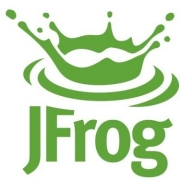

Prisma Cloud by Palo Alto Networks and JFrog Xray are competing products in the cloud security and artifact scanning category, offering distinct advantages. Prisma Cloud offers robust security features, making it favorable for comprehensive cloud protection. In contrast, JFrog Xray is preferred for organizations focusing on DevOps practices due to its superior artifact scanning capabilities.
Features: Prisma Cloud provides comprehensive cloud security with features like threat detection, compliance monitoring, and real-time alerts. It excels in protecting multi- and hybrid-cloud environments, offering cloud workload protection and security posture management. JFrog Xray is known for its deep artifact analysis and scanning, supporting integration in the software development lifecycle with tools like Artifactory, providing a holistic approach to identifying vulnerabilities in dependencies, and license compliance checks.
Room for Improvement: Prisma Cloud could enhance its ease of integration with DevOps tools and improve container security monitoring. The interface could be more user-friendly, and real-time updates for new threats could be faster. JFrog Xray might benefit from expanding its scanning capabilities to cover more environments, improving user interface complexity, and offering more detailed reports on vulnerabilities and compliance issues.
Ease of Deployment and Customer Service: Prisma Cloud integrates seamlessly with various cloud platforms, providing strong support for troubleshooting and onboarding. Its deployment process caters well to enterprises needing comprehensive cloud protection. JFrog Xray offers straightforward integration within DevOps environments, with effective customer service for technical queries, ensuring quick setup and efficient operation.
Pricing and ROI: Prisma Cloud, with its higher setup cost, offers substantial returns for organizations needing extensive cloud security. The cost may be prohibitive for smaller businesses. JFrog Xray, in contrast, provides a more cost-effective solution, advantageous for startups and mid-sized enterprises focused on development efficiency. While Prisma Cloud's extensive features appeal to larger enterprises, JFrog Xray's cost-benefit ratio makes it attractive for smaller companies.
It eliminates the need for additional hardware, making it a financially and technically sound investment.
Reputation and data security are the two most important things to a financial institution.
We may have prevented a security breach with remediation of the findings.
When we need clarifications, we contact our account manager, and they arrange demos.
On a scale of 1 to 10, I would rate the technical support of JFrog Xray an eight because they are very knowledgeable.
They can respond with technical documentation or pass on the case to the next level because it requires the development of a new feature or changing a feature due to a bug.
Their technical support comes up with good solutions for every difficulty we face.
Their technical support comes up with great solutions.
According to my use case, it is highly scalable.
It's very scalable and very easy to use.
The scalability is also a 10 out of 10.
We are growing extremely quickly, and Prisma Cloud provides all the required services without any need for us to do anything to scale.
I use JFrog Xray primarily for security purposes, and I find it reliable.
We did experience crashes, downtimes, and performance issues with JFrog Xray.
I would rate it a ten out of ten for stability.
Prisma Cloud is a stable platform.
The solution is stable and is capable of covering large enterprises.
When we have given a very long tag, it doesn't work as expected and requires excessive scrolling.
somehow you need to adapt your GitLab pipeline and turn them into JFrog pipeline, and this is something they don't really advertise at first—you're obliged to use the JFrog CLI.
X-ray needs improvement in supporting more than one database, as it currently only supports PostgreSQL.
From a developer's perspective, especially for organizations like banks developing their applications, ensuring API security before deploying them to the cloud is crucial.
Prisma Cloud is an excellent tool.
Even though documentation was available, it took a while for a new person to understand what integration meant, what will be achieved after the integration, or how the integration needed to be done on the Azure or AWS side.
JFrog Xray provides a free trial of 14 days.
The basic scanning capabilities come with Artifactory, however, curation requires additional licenses.
The cost was not on the higher side.
That's why a lot of our clients are shifting from cloud-native to Prisma Cloud: because of its effectiveness and because it is budget-friendly as well.
The solution is very expensive.
The most valuable features of JFrog Xray are its curation capabilities, its native integration with Artifactory, scanning for vulnerabilities, and license compliance features.
The policy-driven approach of JFrog Xray helped me maintain security standards by integrating it in the development pipeline.
With other registries such as ECR, we can use the images only in the AWS cloud. With JFrog, we can use this registry from any cloud or work locally as well.
What I like most about Prisma Cloud is its zero-day signatures, maximum security, minimal downtime, cloud visibility, control, and ease of deployment.
All five modules are taking a preventative approach to the security of the cloud environment, from the network to the cloud, posture management and workload protection.
We use it with multi-cloud environments, and there are five cloud providers supported, including Amazon Web Services, Oracle, GCP, Azure, and Alibaba.
| Product | Market Share (%) |
|---|---|
| Prisma Cloud by Palo Alto Networks | 10.6% |
| JFrog Xray | 4.0% |
| Other | 85.4% |


| Company Size | Count |
|---|---|
| Small Business | 1 |
| Midsize Enterprise | 3 |
| Large Enterprise | 6 |
| Company Size | Count |
|---|---|
| Small Business | 37 |
| Midsize Enterprise | 20 |
| Large Enterprise | 55 |
JFrog is on a mission to enable continuous updates through Liquid Software, empowering developers to code high-quality applications that securely flow to end-users with zero downtime. The world’s top brands such as Amazon, Facebook, Google, Netflix, Uber, VMware, and Spotify are among the 4500 companies that already depend on JFrog to manage binaries for their mission-critical applications. JFrog is a privately-held, global company, and is a proud sponsor of the Cloud Native Computing Foundation [CNCF].
If you are a team player and you care and you play to WIN, we have just the job you're looking for.
As we say at JFrog: "Once You Leap Forward You Won't Go Back!"
Prisma Cloud by Palo Alto Networks provides comprehensive cloud-native security solutions. It covers dynamic workload identity, automated forensics, and multi-cloud protection, ensuring robust security across diverse cloud platforms.
Prisma Cloud delivers advanced capabilities for managing cloud security across AWS, Azure, and GCP platforms. It offers dynamic workload identity creation, real-time monitoring, and seamless integration into CI/CD pipelines. With automation, centralized dashboards, and enhanced visibility, users effectively manage security misconfigurations and vulnerabilities. While optimizing cloud environments through runtime protection and compliance, Prisma Cloud faces challenges with its navigation, pricing, and limited automation capabilities. Users seek improvements in API security, role-based access controls, and documentation quality, emphasizing the need for enhanced customization and reporting features.
What are the important features of Prisma Cloud?
What benefits or ROI should users consider in reviews?
Industries like finance and telecom rely on Prisma Cloud for managing cloud security posture and container security. Teams utilize its capabilities across hybrid and multi-cloud settings to ensure compliance and robust threat protection. Features like misconfiguration detection and runtime monitoring are critical in promoting security objectives in these sectors.
We monitor all Container Security reviews to prevent fraudulent reviews and keep review quality high. We do not post reviews by company employees or direct competitors. We validate each review for authenticity via cross-reference with LinkedIn, and personal follow-up with the reviewer when necessary.